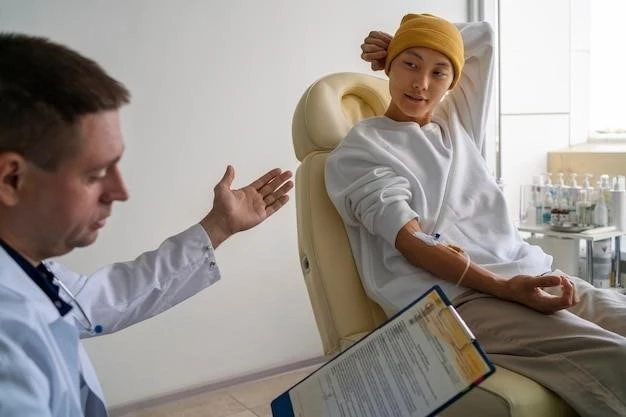Introduction
Thong-Douglas-Ferrante Syndrome, also known as Short Stature and Deafness with Neutrophil Dysfunction and Facial Dysmorphism, is a rare genetic disorder.
Overview of Thong-Douglas-Ferrante Syndrome
This rare genetic disorder is characterized by short stature, sensorineural deafness, mutism, facial dysmorphism, and abnormal neutrophil chemotaxis leading to recurrent infections. It affects multiple organs and systems, impacting growth, hearing, and immune function.

Symptoms and Diagnosis
Thong-Douglas-Ferrante Syndrome presents with symptoms such as short stature, sensorineural deafness, mutism, facial dysmorphism, and neutrophil dysfunction. The diagnosis involves evaluating these characteristic features.
Characteristics of Thong-Douglas-Ferrante Syndrome
This syndrome is identified by traits such as short stature, sensorineural deafness, mutism, facial dysmorphism, and abnormal neutrophil chemotaxis leading to recurrent infections. It is a rare genetic disorder affecting multiple organs and systems.
Diagnostic Process for Thong-Douglas-Ferrante Syndrome
The diagnosis of Thong-Douglas-Ferrante Syndrome involves a thorough evaluation of the characteristic symptoms such as short stature, sensorineural deafness, mutism, facial dysmorphism, and abnormal neutrophil chemotaxis. Genetic testing, physical examinations, and assessment of medical history are essential in confirming this rare genetic disorder.
Treatment and Management
Thong-Douglas-Ferrante Syndrome treatment focuses on addressing symptoms like short stature, deafness, and neutrophil dysfunction. Management strategies aim to improve quality of life and address specific complications associated with the disorder.
Approaches to Treating Thong-Douglas-Ferrante Syndrome
Treatment strategies for Thong-Douglas-Ferrante Syndrome aim to manage symptoms like short stature, deafness, and immune system dysfunction. While there is no definitive cure, medical interventions focus on addressing individual symptoms and improving overall quality of life for affected individuals.
Complications and Prognosis
Potential complications of Thong-Douglas-Ferrante Syndrome include issues related to growth, hearing, and immune function. The prognosis varies based on individual symptoms and management strategies.
Potential Complications of Thong-Douglas-Ferrante Syndrome
Individuals with Thong-Douglas-Ferrante Syndrome may experience complications related to growth, hearing loss, immune system dysfunction, recurrent infections, and the distinct facial and skeletal features associated with the disorder. The management of these complications is crucial in improving the quality of life for those affected by this rare genetic syndrome.
Prognosis for Individuals with Thong-Douglas-Ferrante Syndrome
The prognosis for individuals with Thong-Douglas-Ferrante Syndrome varies depending on the severity of symptoms and the management strategies employed. Early detection, comprehensive medical care, and supportive therapies can significantly impact the long-term outlook for affected individuals.
Causes and Risk Factors
Thong-Douglas-Ferrante Syndrome is primarily caused by genetic variations and certain risk factors, leading to short stature, deafness, neutrophil dysfunction, and distinctive facial features.
Underlying Causes of Thong-Douglas-Ferrante Syndrome
Thong-Douglas-Ferrante Syndrome is primarily caused by genetic variations that lead to short stature, sensorineural deafness, abnormal neutrophil chemotaxis, facial dysmorphism, and recurrent infections. Certain risk factors may also contribute to the manifestation of this rare genetic disorder.
Risk Factors Associated with Thong-Douglas-Ferrante Syndrome
Thong-Douglas-Ferrante Syndrome is primarily influenced by genetic variations as well as other potential risk factors such as low birth weight, achondroplasia, and certain syndromes and conditions like 18p minus syndrome and glaucoma. These factors can contribute to the development and manifestation of this rare genetic disorder.

Current Research and Future Directions
Ongoing studies and developments in Thong-Douglas-Ferrante Syndrome research aim to enhance understanding of this rare genetic disorder, leading to improved diagnostic methods, treatment options, and holistic management strategies for affected individuals.
Ongoing Studies and Developments in Thong-Douglas-Ferrante Syndrome Research
Research into Thong-Douglas-Ferrante Syndrome focuses on enhancing diagnostic capabilities, exploring potential treatment modalities, and understanding the underlying genetic mechanisms contributing to the disorder. Ongoing studies aim to improve outcomes and quality of life for individuals affected by this rare genetic syndrome.
